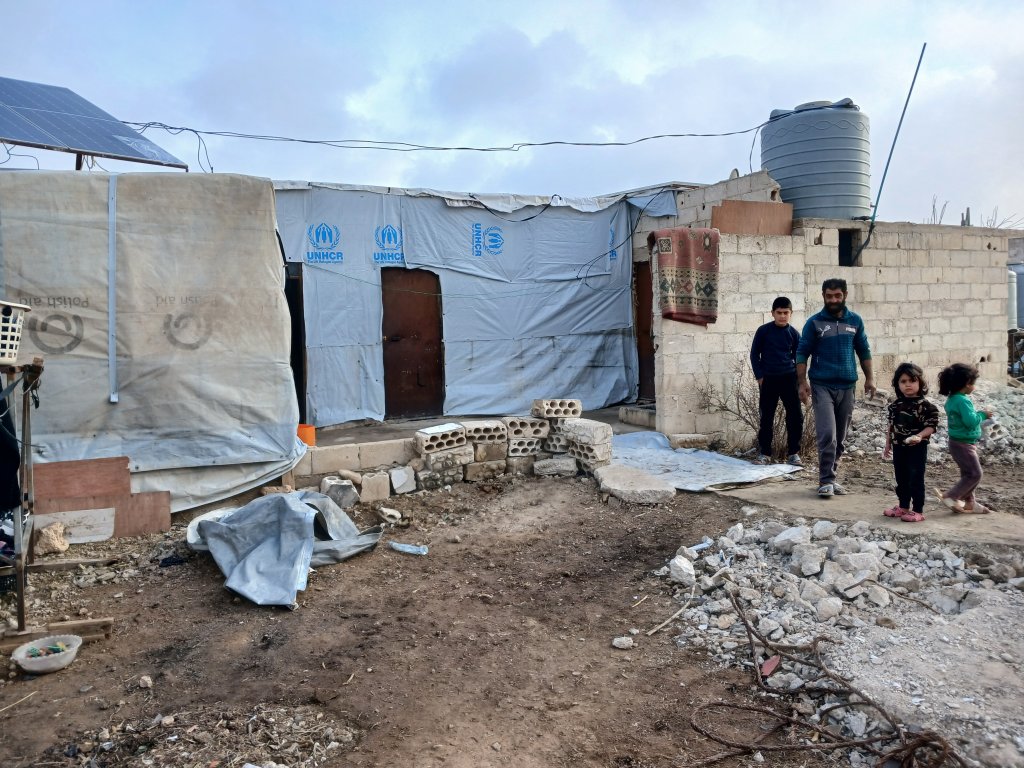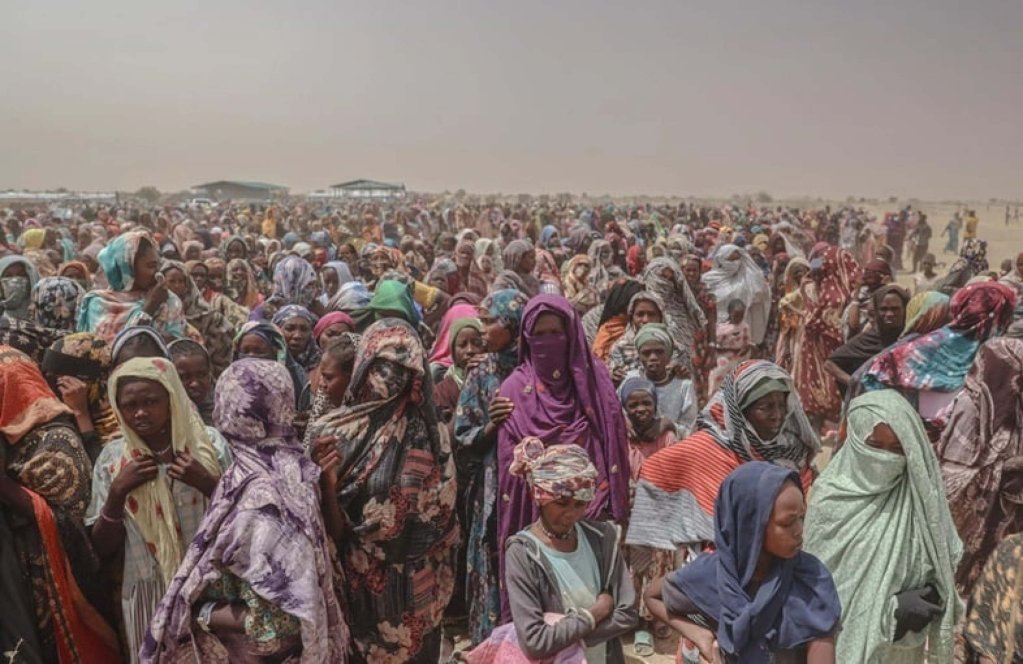The UN Refugee Agency (UNHCR) is cutting 3,500 jobs and downsizing due to a sharp drop in humanitarian funding, risking vital services for millions of refugees. InfoMigrants spoke with spokesperson Matthew Saltmarsh about the far-reaching impact of these cuts.
The UN Refugee Agency (UNHCR) has announced sweeping job cuts and operational downsizing in response to a severe decline in global humanitarian funding. According to the agency, approximately 3,500 staff positions will be eliminated, with hundreds of temporary contract workers also forced to leave.
UNHCR, which operates in over 130 countries, said the restructuring will lead to around a 30 percent reduction in global personnel costs. Offices worldwide have already begun to close or downsize, including nearly halving the senior roles at its Geneva headquarters and regional bureaus. The agency emphasized that efforts were made to preserve operations in areas with the most urgent refugee needs.
Programs serving vulnerable populations have already been hit hard, including financial aid, health, education, and sanitation support. UNHCR is collaborating with other UN bodies, NGOs, and host governments to minimize disruption, while exploring centralized support systems and expanding digital tools to stretch limited resources.
United Nations High Commissioner for Refugees Filippo Grandi expressed deep concern about the deteriorating funding landscape: "In light of difficult financial realities, UNHCR is compelled to reduce the overall scale of its operations. We will focus our efforts on activities that have the greatest impact for refugees, supported by streamlined headquarters and regional bureau structures."
The agency anticipates that its 2025 funding levels will match those from a decade ago, even though the number of forcibly displaced people worldwide has more than doubled -- now surpassing 122 million.
Read AlsoUS aid cuts could lead to more refugee movements, migration to Europe
Domino effect
Matthew Saltmarsh, global spokesperson for UNHCR in Europe, tells InfoMigrants that the impact will have a domino effect. "Critical refugee registration and biometrics -- essential for identity verification and fraud prevention and fair aid distribution -- will be compromised." He notes that millions will not be registered, "hampering access to services, and weakening security and border control. Every day funding is delayed, needs will increase."
A key driver behind the crisis has been the drastic rollback of US support under President Donald Trump’s administration. Since returning to office, Trump has frozen US foreign aid and slashed 83 percent of programs managed by the US Agency for International Development (USAID), which previously had a 42.8 billion US dollars budget and accounted for roughly 42 percent of global humanitarian aid. Plans to dissolve USAID altogether have also been announced, sending shockwaves through the international aid community.

UNHCR acknowledged the growing strain these cuts have placed on humanitarian services. "Aid brings a degree of stability in deeply volatile situations," said Grandi. "Investing in aid not only saves lives; it also avoids higher costs down the line when desperate people are forced to move on in search of safety."
Saltmarsh explains: "Like some others in this sector, we have become reliant on a number of donors. We are acutely aware of that and have tried to diversify -- for example, expanding efforts in the Middle East, East Asia, and establishing national partners to fundraise on our behalf. That has produced some positive results -- at the start of the Ukraine war, we raised record sums privately. But we cannot replace major chunks of funding in a short period. Most of our top government donors are rationalizing and reducing their foreign aid programs."
Read AlsoNumber of forcibly displaced 'untenably high' – UN
'Unshakeable commitment'
Despite the setbacks, Grandi reaffirmed UNHCR’s mission: "Even as we face painful cuts and lose so many dedicated colleagues, our commitment to refugees remains unshakeable." He noted that nearly 2 million Syrians have returned home since December, demonstrating the importance of sustained support in achieving long-term solutions.
Saltmarsh adds: "We are urgently seeking additional support from existing donors like the EU and new partners, including the private sector, to continue essential operations, maintain stability in fragile regions, and support refugee returns wherever feasible."

In 2024, UNHCR responded to 43 emergencies, providing a lifeline to people fleeing deadly conflicts in Sudan, Syria, and Ukraine. "Our work has saved and sustained countless lives," says Saltmarsh.
He stresses that UNHCR’s logistics capacity – built over decades – far outstrips what most governments or private actors can provide, especially in remote or politically unstable regions. "Starve us of funds, and these structures will disappear. And once they’re gone, you lose the fruits of many years of investment," Saltmarsh warns.
Still, he notes that the agency "will retain close coordination structures among UN agencies and humanitarian partners."
Read AlsoUNHCR: More than 500,000 Syrians have returned to their country since Assad fell
Real-world consequences
Over the past few months, UNHCR has seen real-world consequences from the financial crisis.
In Syria, funding shortfalls threaten to halt life-saving services and close community centers, affecting nearly 13 million displaced people.
"The current humanitarian funding crisis is affecting the scope and quality of public health and nutrition programmes for refugees and host communities," Saltmarsh tells InfoMigrants.
In Bangladesh, about 1 million Rohingya refugees face a severe health crisis due to the funding freeze, threatening access to essential medical services. While in South Sudan, only 25 per cent of the dedicated spaces created by UNHCR for women and girls at risk of violence are currently operational, leaving tens of thousands without emergency psychosocial, medical or legal support.
"Reduced funding will cut off access to water, sanitation and medical care for at least 500,000 displaced people in Sudan," he says.
He concludes that the agency will "continue to advocate for and emphasize the importance of supporting people forced to flee and their host communities. Not only because it is the right thing to do, but because it is the smart thing to do," he says.

Saltmarsh concludes by underlining the broader implications: "our work saves lives, and protects and advances solutions for forcibly displaced people. In doing so, we help stabilize fragile regions, keep people from making dangerous journeys onwards, strengthen local economies, and contribute to broader security and peace."
He warns that without urgent funding, these stabilization gains will unravel. "People who might have stayed where they are will be forced to move for safety or opportunity -- that could be to Europe or to other regions. It leaves fertile ground for human traffickers, extremist groups and other transnational threats to gain influence."
